Yud Shevat 5771: A War on Apathy & a New Language to Transform Pain
Igniting Your Inner Violin. Webcast of Music & Inspiration Commemorating the 61st Yartziet of the Sixth Chabad Rebbe & the Anniversary of the Lubavitcher Rebbe's Leadership
2 hr 39 min
- February 2, 2012
- |
- 9 Sh'vat 5772
Rabbi YY Jacobson
1601 views- 21Comment
- Call-in
Listen to the class on the phone
Call +1 (845) 201-1933
When prompted, dial the ID number below.
168 MP3 MP4 Source Sheets - Copy Embed
Dedicated by David and Eda SchottensteinIn the loving memory ofAlta Shula SwerdlovAnd in honor of the birth of their daughterYetta Alta Shula, "Aliyah" Schottenstein
Class Summary:
A War on Apathy and a New Language to Transform Pain- Ignite Your Inner Violin with Webcast of Music & Inspiration Commemorating the 60th anniversary of the Leadership of the Lubavitcher Rebbe
Tags
Show More
Categories
Show More
Rabbi YY Jacobson
- February 2, 2012
- |
- 9 Sh'vat 5772
- |
- 1601 views
Dedicated by David and Eda SchottensteinIn the loving memory ofAlta Shula SwerdlovAnd in honor of the birth of their daughterYetta Alta Shula, "Aliyah" Schottenstein
Classes in this Series
Please help us continue our work
Sign up to receive latest content by Rabbi YY
Join our WhatsApp Community
Join our WhatsApp Community




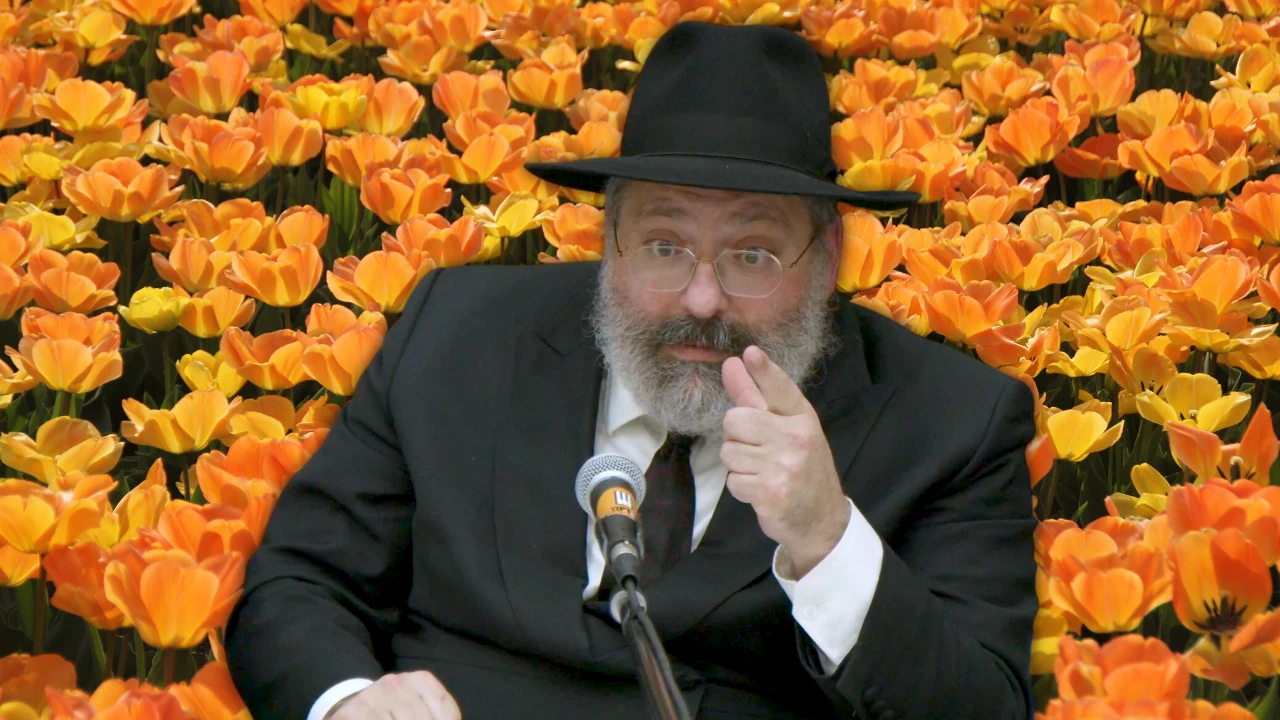
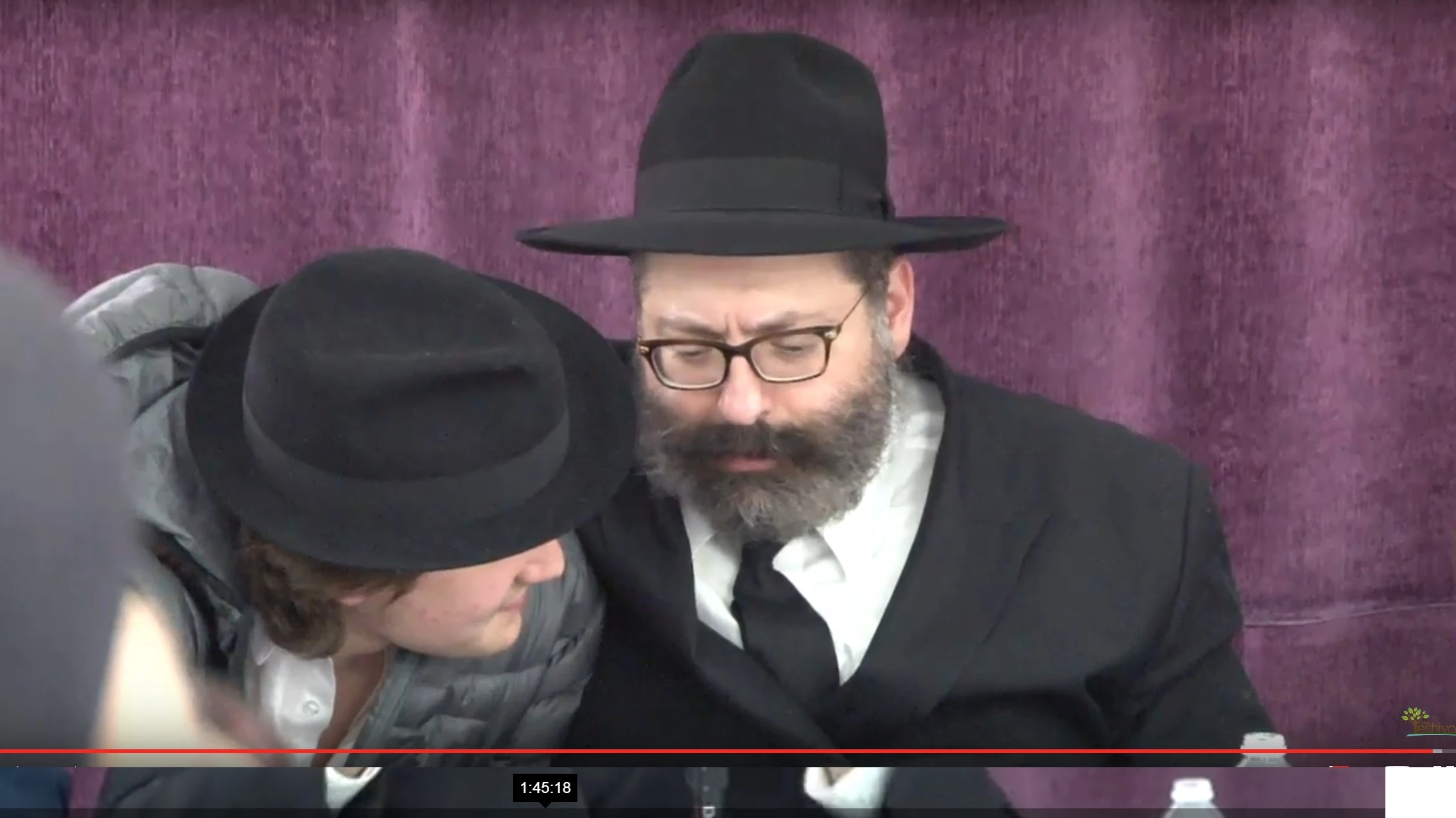
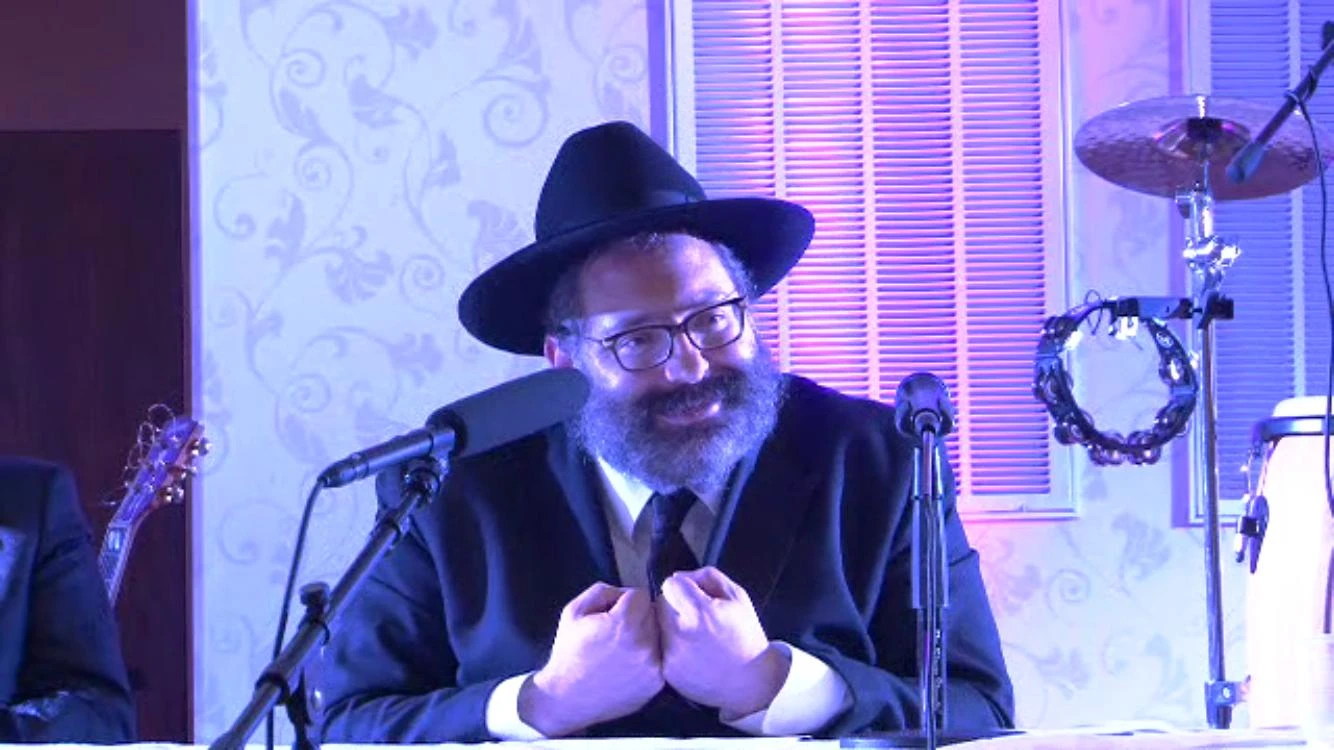
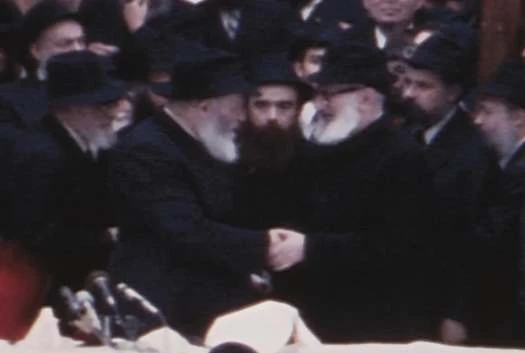
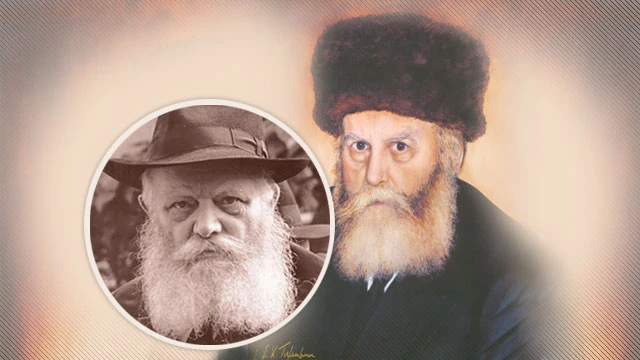
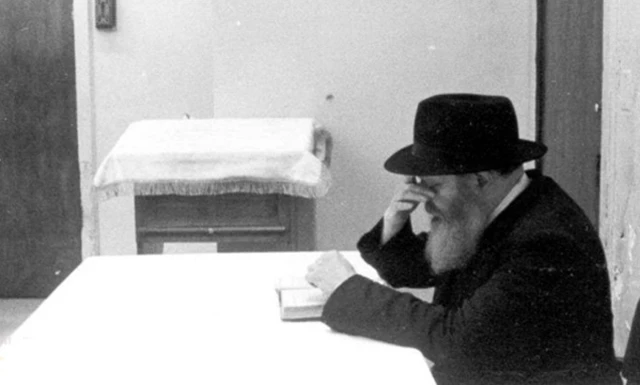
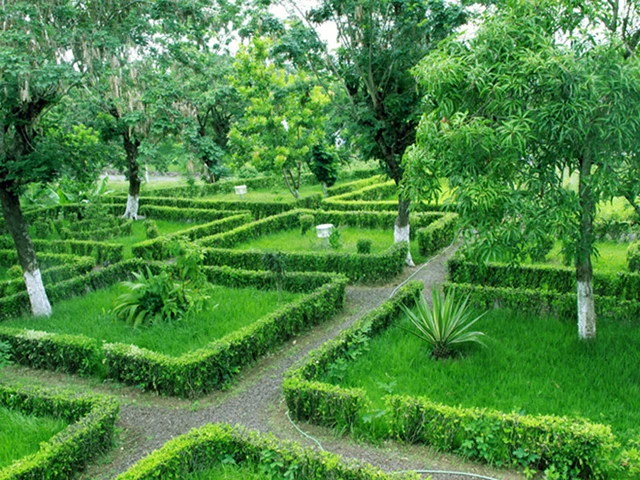
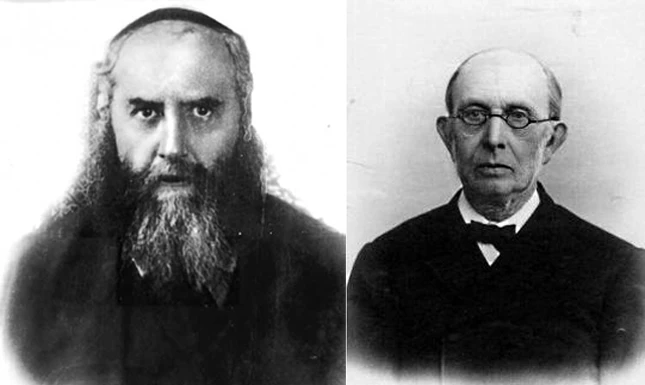
Please leave your comment below!
Anonymous -12 years ago
Beautiful
Rabbi Jacobson,
Pashut beautiful. This is what speaks to so many ba’alei teshuva, something
that can only be described in feeling. Thanks for composing these simple, yet
deep words to give Am Yisrael chizuk. At the end of the day we are
all still Yisrael, our true self, even if Esav brings us to forget that sometimes.
Can’t wait to share this over and over again.
Besorot Tovot,
Aitan
Reply to this comment.Flag this comment.
Bat. Rachamim -12 years ago
Balaam's Praise
This was nice but I'm not sure that I agree exactly with the interpretation of the symbolism of the tent and the dwelling. I mean exhibiting a little uncertainty or even some doubt in the divine (as the commentary likens to a tent) is not only not wrong, but an idea instilled in the Jewish character. That fact is even referenced below with the name Yisrael, it means to "wrestle with G-d", the Jewish people have always been prone and even encouraged to question and delve into those uncertainties of life, to say that as a people we have certainly answered all our questions about the universe is both an insult to the unbounded divinity of G-d and an exhibition of utter hubris on our part. After all, we still do not understand the reasons behind the Choks (laws-decrees) that G-d commanded us to follow.
Looking at the context in which the phrase in question was spoken, that of unadulterated praise of the Jewish people I would personally be more inclined to understand the phrase in a more positive light. I understood the phrase to mean that no matter where we are, settled in a dwelling in Israel, or as nomads in the Diaspora there is a character of goodliness and holiness in our homes wherever we are and no matter the conditions we live in, because no matter where we are our belief in G-d remains intact and that is perhaps what Balaam intended to say.
Reply to this comment.Flag this comment.
Anonymous -12 years ago
Re: Balaam's Praise
I agree with you. You are on target. The praise of Balaam is that even Yaakov creates a "tent" for Hashem. There is a holiness embedded in the very depth of the Jewish soul and psyche.
Reply to this comment.Flag this comment.
Leizer -12 years ago
יפה יפה
Beautiful piece. Trememdous chizuk!
Reply to this comment.Flag this comment.
yidfromtoronto -12 years ago
confused
with all due respect, it sounds like you are giving lecatchila promoting a life filled with spare moments of tapping in to spirituality over a life saturated with torah, avodah and gemilas chasodim!!!
( also where is the source for this bal shemtov?)
Reply to this comment.Flag this comment.
Anonymous -12 years ago
Re: confused
Hi Reb Yid From Toronto, Of course not! We are discussing a person who struggles with spirituality and Avodah, someone who may have deep struggles inside, or much stress outside, or a combination of both-- this includes basically so many of us--not someone who willingly rejects Avodas Hashem. And we are giving this person comfort and strength to appreciate the tremendous value of their "small" Avodah. By the way, their lives may be filled with Gemach, they may daven and learn every day, but they are still pulled down by the incessant gravitational forces of material pressures in all their manifestations, not by their fault, but by their destiny. A similar concept we find in Tanya ch. 27 where the author comforts the Jew who never stops struggling. Cf. Tanya ch. 35. I don't recall presently the source in the Baal Shem Tov. I will search for it. Here are two other sources, which are connected:
מה טובו אוהליך יעקב משכנותיך ישראל. יש לפרש בזה בדרך רמז דהנה אהל היינו מה שהוא דרך עראי ומשכן הוא דבר קבוע, וזהו שמרמז מה טובו אהליך היינו אפילו נסיעה שלך שאינך בביתך, יעקב אף שאתה מדריגה תחתונה והטעם משכנותיך ישראל שזה הוא בזכות אבותיך הקדושים שהיו משכן להקב"ה והיו זוכים להשראת שכינה זה אמרתי לפי השעה והצורך
בעת ההוא והמשכיל יבין, ועוד יש בזה מילין לאלוק' וכשיזכני ה' בחסדו
הגדול אזי אבאר: דגל מחנה אפרים
או יאמר אוהב כו' ע"פ הפסוק מה טובו אוהליך יעקב כו' דמדרגת יעקב הוא מדרגה התחתונה וישראל הוא מדרגה
עליונה ואהל הוא בנין עראי ומשכן הוא הקבוע * וזהו מה טובו אהליך יעקב פירוש מה טוב הוא כשהמוני עם
קובעים לתורה עיתים כאהל שהוא בנין עראי * משכנותיך ישראל פירוש הצדיק השלם שהוא קובע עצמו בקביעות
בעבודות הבורא כמשכן הקבוע. והנה דרך הצדיק העובד ד' בקביעות נדמה אליו תמיד שעדיין לא התחיל כלל
לכנוס בעבודת הבורא ודומה לו שאינו עומד אלא על שער העבודה וזהו שאמר אוהב ד' שערי ציון שאוהב השם הטוב
אותם הצדיקים המצויינים בהלכה והם בעיניהם כעומדים על השער עדיין מכל משכנות יעקב פירוש מאותם
הנקראים בשם יעקב והם סוברים שכבר עשו בעבודתם בנין קבוע כמשכן הקבוע וק"ל: נועם אלימלך – פ' קרח.
Reply to this comment.Flag this comment.
yidfromtoronto -12 years ago
Re: confused
ahhh thanx for the clarification
Reply to this comment.Flag this comment.
Benveniste,Tsfat -13 years ago
A lechaim from our hippyish Pesach table."Lechaim ...to Pain!"
Bs"d
As we quizzically pondered the remark,he concluded "...May the pain from our past... become the strength of our future!" -Michoel Benveniste,zt"l,said on Pesach Seder night,early 70's,Berkeley,Ca.
Reply to this comment.Flag this comment.
CARMELA -14 years ago
RESPONSE TO SUBURBIENCES LIKE CHAIM
B''H
THE APATHY MENTIONED AT THE BEGINING OF R' YY WORDS OF WISDOM, AND THE BITTERNESS
(NOT THE WATER BITTER, BUT THE DRINKERS ATTITUDE TURNS THE WATR TO TASTE BITTER)
MENTIONED TOWARDS THE END OF THIS WONDERFUL FARBRENGEN,ARE
SOMETHING TO CONTEMPLATE FOR ALL OF US, MAINLY TO THOSE WHO NEVER FIND A WORD OF GRATITUDE AND APPRECIATION,BUT
HAVE A STORAGE RICH OF COMPLAINTS,JUDGEMENT,PAYING ATTENTION TO WHAT IS NOT RATHER THAN RELATING TO THE
BEAUTY OF WHAT IS, IN R' YY IMPORTANT CONTRIBUTION TO US IN WAKING UP THE JEWISH SPARKS
IN US,MENTALLY, EMOTIONALLY AND SPIRITUALLY.
FOR MOSHIACH TO COME WE HAVE TO GROW OUT OF ''KATNOOT MOCHEEN'' AND LET AHAVAT YISRAEL FLOW FROM OUR HEARTS.
THERE IS MORE ROOM FOR HUMILITY.
WHO ARE WE TO KNOW OR UNDERSTAND THE GREATNESS OF THE LAST REBBE, TO QUESTION HIS WAYS, TO ALLOW OURSELVES TO ANTICIPATE,IMAGINE OR CONCEPTUALIZE,ACCORDING TO OUR STANDARDS, HOW THE REBBE SUPPOSED/SHOULD BE,DO OR NOT DO THINGS?
DEAR CHAIM,WHY NOT CHECK WHAT AND HOW YOU DO THINGS RATHER THAN LOOKING FOR FLAWS IN THE HOLLIEST OF HOLLIES...
THEN THE WATER YOU DRINK WILL TASTE SWEET...
C. ISRAEL
Reply to this comment.Flag this comment.
Yehudis -14 years ago
Yud Shevat
It was a nice farbrengen with good stories and important messages but ... isn't Yud Shevat about the Rebbe accepting the Chabad leadership? Isn't Yud Shevat about hiskashrus? I didn't hear anything about that :(
Reply to this comment.Flag this comment.
YH -14 years ago
shhh
I agree with the previous person who said the piano playing while you speak is annoying and distracting.
Reply to this comment.Flag this comment.
chaim -14 years ago
question
They also told the sefarim on the table story erev Yud Shevat for a different lesson...he was Moshiach even....
I have a different question on this story about the doctor on 10 shevat 1951. Does it not show that a mamar is not all Shechina medaberes metoch grono? That the Rebbe prepares for a sicha, fine. but for a mamar?
I thought a mamar needed no arousal from below.
Reply to this comment.Flag this comment.
Esther Tauby -14 years ago
Yud Shvat fabrengen
Last night's fabrengen was excellent. Rabbi Jacobson was outstanding and he spoke not just about spiritual and intellectual concepts but also about important and timely issues including abuse. The singing of niggunim with the live music enhanced this special event and made a warm chassidishe atmosphere. All in all, it was a very inspiring evening. Thank you so much!
Reply to this comment.Flag this comment.
Jeff -14 years ago
Wow...
What a gift! You gave all & all of me received and was nourished, thank you! Very, very important lessons discussed for these times we live.
Much much continued support, strength, and blessings to all of you who make available and give access to the world G-d's word and your gifts.
...Greatly needed - in these times, an equal, if not greater showing of light must be made. Thank you, thank you.
Reply to this comment.Flag this comment.
Aidel -14 years ago
Yacov Young
Singer was great!
Reply to this comment.Flag this comment.
Kayo, Tokyo -14 years ago
Holy Addiction
Baruch HaShem
Toda Raba Schottensteins!!
My most comfortable of all is to be with Chabad Lubavitch. This is who I am! Your Shimchat is contagious. Chabad has re-channeled my passion to Ahavat Israel, Ahavat HaShem, and Ahavat Torah.
Reply to this comment.Flag this comment.
Marty Taub -14 years ago
Fantastic Yud Shevat Fabrengan
Very applicable to my life. I am extremely appreciative for this web service. I watched the first 3 sections at shul. Then I came home and could watch on my laptop. Thank you, and l'chaim to R YY Jacobson, and to all who put this together.
Reply to this comment.Flag this comment.
malka -14 years ago
Brilliant, everything you said was so practical and with the times
Reply to this comment.Flag this comment.
mendel lipskier -14 years ago
say it
say the joke of moshe vise when he comes toamerica from russia
Reply to this comment.Flag this comment.
ISAAC SHLOMO -14 years ago
MUSIC
Why are you iterapting the talk with the piano backround ??its annoying please stop
Reply to this comment.Flag this comment.
yid -14 years ago
lechaim
Reply to this comment.Flag this comment.
Moishy -14 years ago
Yacov Young is Great!
We had him sing at my sisters wedding he is mamesh the best!
email him for more info @
[email protected]
Reply to this comment.Flag this comment.
Isaac -14 years ago
Yacov Young
Looking forward to hear him. he is very good. you can watch this nice clip of his:
http://www.youtube.com/watc...
Reply to this comment.Flag this comment.
Elie from Canada -14 years ago
The great service rendered by Rabbi Jacobson and the Schottensteins
I wish to express my feelings regarding the great service rendered by Rabbi Jacobson and the Schottensteins in providing many of us with inspiration and values. No one is doing anything comparable. I have been listening for over 3 years now and have yet to find a similar level of Torah lesson.
Until now I have taken this site for granted but now its time for me to donate to this very worthy cause. I am now donating $54 via paypal and want to encourage all my fellow RYYJ listeners to make a donation, whatever you can afford. I assure you that G-d will repay you when you give Tzedakah. I was not asked to write this, am doing it on my own. I have delayed making a donation but we should all give a little especially those like me who have been listening for a while now and, like me, cannot let a week pass by without my dose of Jacobson Torah. Nuff said, am off to paypal... Shalom all !!! Eliyahu
Reply to this comment.Flag this comment.